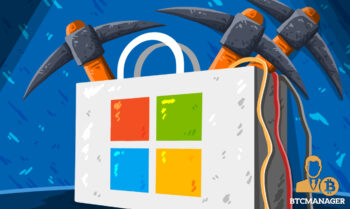2019-5-22 21:00 |
Recently, Reuters published a report on Monero [XMR], a leading fungible coin. The news organization stated that this was part of its series that “examines the features and characteristics of some of the alternatives to Bitcoin that have grabbed the attention of developers, investors and regulators,” with Monero being the first altcoin.
However, the community did not seem to be very pleased with the content presented in the article, with Monero Outreach, a work group of the decentralized Monero community, responding with another blog post.
About Monero, Reuters stated that the cryptocurrency enabled users to “conceal” almost all the details of a transaction. It further distinguished the coin from Bitcoin, stating that Monero’s transactions obscures the from and to addresses, as well as the amount involved in the transaction.
On the reason why the cryptocurrency was gaining attention, the Reuters report highlighted the Norwegian kidnapping case, where the fungible coin was demanded in ransom. The report went on to state,
“The unusual request underlined a growing trend for criminals to seek alternatives to bitcoin, which through its first decade has become the cryptocurrency of choice for illicit activities from buying contraband to laundering money, cybersecurity experts and law enforcement agencies say.”
Further, it pointed out the use of the cryptocurrency in the darknet marketplace, stating that three out of the five biggest marketplaces accepted the fungible coin as a mode of payment. Nevertheless, the report did mention that Bitcoin continued to be a “widely used” digital asset for darknet payments. Following this, the report also highlighted the coin’s involvement in crypto jacking, remarking that 4 percent out of the total 17 million coins in circulation were mined using malware.
On who uses the cryptocurrency for a legitimate purpose, the article said,
“Data on who uses Monero and why is scarce. That’s a challenge for understanding the usage of any cryptocurrency, even more so for one designed to obscure its tracks”
This report was soon met with a response from one of the teams dedicated towards the development of the Monero ecosystem, Monero Outreach. A blog post titled ‘A Response to Reuters’ that was published on 20th May, stated,
“[…] the story that ‘examines the features and characteristics of some of the alternatives to bitcoin […]’ it arguably over emphasized the criminal use of Monero and under presented the features and characteristics that make Monero great and popular.”
Features and characteristics that make Monero great and popular | Source: Monero Outreach
Further, the blog post listed down the reasons why the coin had gained attention. This included the underlying code improvements that made it “more efficient, faster, and more user friendly,” the coin gaining the position of a leader among fungible coins, and its contributions to academic research. The team further stated,
“Lastly, the article mentions ‘cryptojacking’, while neglecting to discuss the issue of botnets in general and how they are a problem with computer operating systems. Monero cannot control the security of operating systems, which would be primarily responsible for eliminating botnets.”
Source: Monero Outreach
This was followed by the Monero team emphasizing that the leading cryptocurrency was a “fungible coin,” and not a “privacy coin.” It also pointed out the “view keys” feature of Monero, where the key “is associated with an address” that enables users holding it the “ability to audit the address without being able to spend the funds.”
The post Monero Outreach responds to Reuters report; claims report ‘over emphasized the criminal use of Monero’ appeared first on AMBCrypto.
origin »Bitcoin price in Telegram @btc_price_every_hour
Monero (XMR) на Currencies.ru
|
|



























